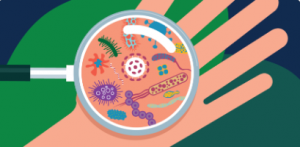
Everyone who experiences this disease will experience it a little differently, because their bodies will respond to the virus in a different way. Following a positive diagnosis you may be able to remain at home in self-isolation or you may need treatment in a hospital.
Home treatment and self-isolation
For most Australians, the virus will cause only a mild illness with symptoms such as a fever, cough or sore throat.
If you can manage your symptoms without a doctor helping you, your doctor will tell you to look after yourself at home in self-isolation. This means you need to stay in a room by yourself while you get better, so you don’t give the virus to anyone else. Read more about how to self-isolate safely.
First Aid for the Virus
- Stay hydrated – drink water until your urine is pale or clear
- Eat healthy – greens, vegies, all the good quality and healthy food groups
- Keep up your vitamins and minerals for immune support – vit C
- Keep temperatures down- damp washer – Panadol used accordingly to your age and weight
- Minimise exercise and high heart rate activities to reserve energy
- Rest – get plenty of rest to recover
Your doctor may have given you advice about medicines you can take to help with your symptoms. It’s important to only take medicines your doctor has recommended.
What happens if my symptoms get worse?
If you start to feel sicker, contact your doctor or call 13 HEALTH (13 43 25 84) to speak to a registered nurse – you can use this service 24 hours a day, 7 days a week.
When to call an ambulance
You should always call an ambulance if:
- you are experiencing severe symptoms, like shortness of breath or difficulty breathing
- you think it’s an emergency
- you think your life or someone else’s life is in danger.
- you have temperatures above 40 degrees
Call Triple Zero (000) and ask for an ambulance. If you can, explain to the operator that you have novel coronavirus (COVID-19).
When can I leave self-isolation?
You can return to normal activity if:
- You have had no symptoms for the previous 72 hours AND
- It has been at least 10 days since the start of your symptoms.
There are additional requirements for healthcare and aged care workers including the need for negative pathology testing.
Hospital treatment
Some people who have novel coronavirus (COVID-19), particularly people who are elderly or have pre-existing health conditions like heart disease, diabetes or asthma, could experience serious symptoms and side effects. Sometimes these can be life-threatening.
Serious symptoms and side effects of novel coronavirus (COVID-19) can include:
- pneumonia – an infection of the lungs which can make it hard to breathe
- bacterial infection – a secondary infection caused by bacteria
- sepsis – a life-threatening condition that happens when the body’s response to an infection damages healthy tissue and organs.
If you are really sick, or at higher risk of getting really sick because of your age or pre-existing health condition, you may be treated in hospital. To prevent the spread of the virus, you may not be allowed to have visitors and the hospital staff treating you will wear special equipment to stop themselves from catching the virus.
The length of your stay will depend on how unwell you are – it might be days or weeks until you are well enough to go home.
If you are severely unwell, you might be treated in the Intensive Care Unit. This may require you to be transferred to a different hospital.
When can I leave hospital?
Your treating team will determine when you can be discharged (sent home from hospital). In some cases you may be sent home and asked to continue to self-isolate until you are fully recovered.
You can return to normal activity if:
- You have had no symptoms for the previous 72 hours AND
- It has been at least 10 days since the start of your symptoms.
There are additional requirements for healthcare and aged care workers including a requirement for negative pathology testing.
How long will symptoms from the virus last?
For some people, symptoms of the virus may last between days and weeks and may get worse over time. People who have experienced severe symptoms or side effects from the virus may take weeks or months to recover fully, while people with a mild illness may feel completely better within a week or two.
Even if your symptoms are mild you should remain in self-isolation for at least 10 days since your symptoms started, and until you have at least 72 hours symptom-free.
What can I do to stop the spread of novel coronavirus (COVID-19)?
If you have been diagnosed with novel coronavirus (COVID-19), you might be concerned about spreading the virus to others. The best thing you can do is self-isolate properly if you are at home, and follow the instructions given to everyone about hygiene.
Every Queenslander should be following these steps to prevent the spread of novel coronavirus (COVID-19):
- wash your hands often and properly
- try not to touch your face
- stand 1.5 metres away from others
- don’t go out when you are sick, even if you have not been diagnosed with novel coronavirus (COVID-19).
Looking after your mental health during treatment
Support is available if you are concerned about COVID-19 or are distressed because you are in self-isolation or in hospital.
Visit the Head to Health website for:
- links to mental health online and phone support
- resources and services that can help if you’re experiencing mental health concerns or trying to support someone else

